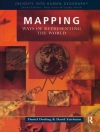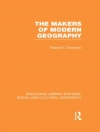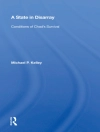This book investigates indigenous knowledge systems (IKS) in sub-Saharan Africa, thereby highlighting its role in facilitating adaptation to climate variability and change, and also demystifying the challenges that prevent it from being integrated with scientific knowledge in climate governance schemes. Indigenous people and their priceless knowledge rarely feature when decision-makers prepare for future climate change. This book showcases how Indigenous knowledge facilitates adaptation to climate change, including how collaborations with scientific knowledge have cascaded into building people’s resilience to climatic risks. This book also pays delicate attention to the factors fueling epistemic injustice towards Indigenous knowledge, which hampers it from featuring in climate governance schemes across sub-Saharan Africa.
The key insights shared in this book illuminate the issues that contribute meaningfully towards the actualisation of the UN SDG 13 and promote mechanisms forraising capacity for effective climate change-related planning and management in sub-Saharan Africa.表中的内容
Indigenous knowledge systems in climate change adaptation and governance: An overview.- Pastoralists’ indigenous adaptation to climate variability and rangeland management in the Ndop plain, Northwest region, Cameroon.- Adopting Indigenous knowledge systems to enhance peace education programs for climate change and adaptation in Zimbabwe.- Influence of Indigenous spiritual beliefs in natural resources management and climate change mitigation among the Yorùbás in Nigeria.- Indigenous women’s vulnerability to climate change and adaptation strategies in Central Africa: A systematic review.
关于作者
Eromose Ebhuoma is a postdoctoral research fellow at the Department of Environmental Sciences, College of Agriculture and Environmental Sciences, University of South Africa (UNISA). His research interests lie in local and indigenous knowledge systems; climate change vulnerability and adaptation; climate services; political ecology; community development; rural livelihoods and environmental sustainability. He has written a number of articles and conference proceedings on topics revolving around his research interests. He is a steering committee member of the South African Adaptation Network.
Llewellyn Leonard is Professor at the School of Ecological and Human Sustainability, University of South Africa. His research interests include environmental justice; sustainability; risk communication; environmental leadership; civil society-state-industry relations; climate change adaptation and mitigation, mining and tourism impacts and political ecology/economy. He has published numerousarticles in international journals.












